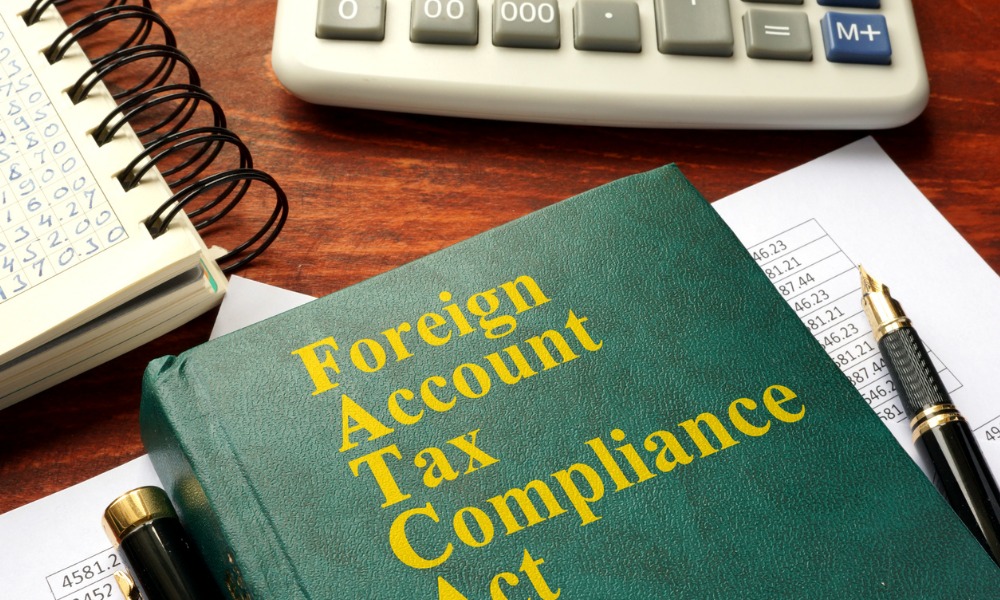Lawmakers, tax experts question ethics of federal agency's monitoring and reporting efforts

Some of the Canada Revenue Agency’s (CRA) efforts to obtain information on Canadian taxpayers are prompting questions from MPs and tax experts who say those activities test ethical boundaries.
A significant proportion of the Canadian bank accounts the CRA has been reporting to its counterpart agency in the U.S. under a 2014 bilateral agreement to curb offshore tax evasion have account balances that fall below the mandatory threshold required, reported CBC News.
In response to an access to information request, the CRA said that in 2019, 615,000 of the 901,000 records it transferred to the U.S. Internal Revenue Service had account balances below the US$50,000 threshold. The previous year, balances in 610,000 of 900,000 accounts the CRA fell below that limit.
Because the U.S. taxes income based on citizenship rather than country of residence, some Canadian residents who are American citizens or have dual citizenship with the U.S. are still subject to U.S. taxation.
“If, in fact, we are giving more than we are required to through FATCA or other negotiated settlements, that's something we need to understand ... because we are giving away precious private information of Canadians to another country,” MP Philip Lawrence, the conservative party's critic for national revenue, told CBC News.
The sentiment was echoed by the NDP's revenue critic, MP Matthew Green, who said: “We have a duty first to our citizens and we have to take seriously the protection of personal information.”
In an email to CBC News, spokesperson Christopher Doody said the CRA is merely relaying information submitted to it by Canadian financial institutions, which “have the discretion to apply, or not apply, the dollar thresholds negotiated in the agreement and as provided by domestic legislation.”
But according to Allison Christians, chair in tax law at McGill University, banks have an incentive to include accounts with balances below the threshold as “there's risk to banks being wrong about that.”
The CRA’s ramped-up efforts to collect undeclared revenue from the platform economy is raising similar concerns, according to the National Post.
On top of monitoring the public accounts of hundreds of Canada’s top social media influencers, the agency’s auditing division has put together a new 60-person unit focusing “exclusively on the platform economy.” The agency checks an influencer’s pages for obvious indications of wealth or gifts, then looks at the individuals previously declared earnings for discrepancies.
“If somebody’s declaring less than $5,000, and they have a Mercedes Benz in their Instagram posts, it’s clear that there’s a question to be answered there,” Ted Gallivan, assistant commissioner at the Canada Revenue Agency and head of the agency’s compliance programs branch, told the Post.
Gallivan said the team has so far completed 40 “exploratory audits” – which turned up an estimated $500,000 in suspected unpaid taxes – with another 200 audits currently in progress.
While Arthur Cockfield, associate dean of Queen’s University faculty of law and tax law expert, agreed that the CRA should try to head off tax evasion or avoidance in the rapidly growing platform economy, he said the agency might be overstepping its boundaries by monitoring social media postings, even if they are public.
“Do they have the legal authority to investigate you when there is no evidence of individual wrongdoing?” he told the Post. “I’m not disagreeing with the CRA strategy in the sense that it’s a pragmatic strategy that could work. But it does raise privacy issues.”
For his part, tax lawyer David Rotfleisch suggested that the CRA enhance its capacity to detect tax dodgers on the underground platform economy, both by growing its nascent 60-person audit team and continuing to come up with “creative audit methods” to find people who aren’t paying their fair share. However, he added that the agency risks running into tripwires in certain cases – luxury items flaunted on social media could have been bought using money from an inheritance, for example.
“I’m very much afraid CRA may jump the gun in certain cases, and that can create an uphill battle for the taxpayer,” Rotfleisch said.



